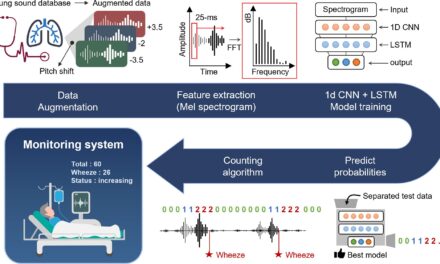A new study, published today in Alzheimer’s & Dementia, suggests that cognitive testing may be a promising tool to enhance the diagnosis of Dementia with Lewy bodies (DLB) at earlier stages, offering hope for more tailored care. DLB, the second most common neurodegenerative dementia after Alzheimer’s Disease, is often misdiagnosed, which can prevent individuals from receiving treatments better suited to their specific condition.
“While research has already identified criteria for diagnosing DLB in research settings, our goal was to translate this knowledge into something usable in clinical practice,” says Dr. Ece Bayram, assistant professor of neurology at the University of Colorado Anschutz Medical Campus and lead author of the study. “By analyzing existing studies, we were able to outline a cognitive profile that distinguishes DLB from Alzheimer’s before dementia fully develops, offering crucial information that can influence care strategies.”
The study conducted a meta-analysis of pre-dementia diagnoses, comparing cognitive symptoms in individuals with DLB and Alzheimer’s. Researchers found consistent differences: people with DLB exhibited greater attention deficits, slower processing speed, and impaired executive function. However, they showed stronger immediate recall and memory performance compared to those with Alzheimer’s.
Dr. Bayram emphasizes the importance of identifying these cognitive profiles to establish clinical guidelines. “These guidelines could be easily incorporated into training for healthcare practitioners, making it possible to provide more personalized care,” she says. “Cognitive assessments are less expensive and more accessible than biomarker tests or imaging procedures, which makes them a practical option for a broader range of clinicians.”
Identifying the type of dementia early on allows both patients and caregivers to plan for the future, potentially improving quality of life by initiating proper symptomatic treatments. For example, individuals with DLB may have adverse reactions to certain antipsychotic medications, such as haloperidol, which can exacerbate their symptoms. Early identification can prevent such complications.
Dr. Bayram notes that the study marks an important advancement in dementia care. “With growing efforts to develop disease-modifying treatments for both Alzheimer’s and Lewy body diseases, being able to diagnose DLB before dementia progresses could help slow or even prevent its onset. These clinical tools allow for better care, even in settings that don’t have access to specialized centers.”
The study offers hope for more effective early intervention and more accessible care options for individuals with Lewy body dementia.
More information about the study can be found in Alzheimer’s & Dementia through the article by Kathryn A. Wyman-Chick et al., Neuropsychological test performance in mild cognitive impairment with Lewy bodies: A systematic review and meta-analysis (2025). DOI: 10.1002/alz.14450.












